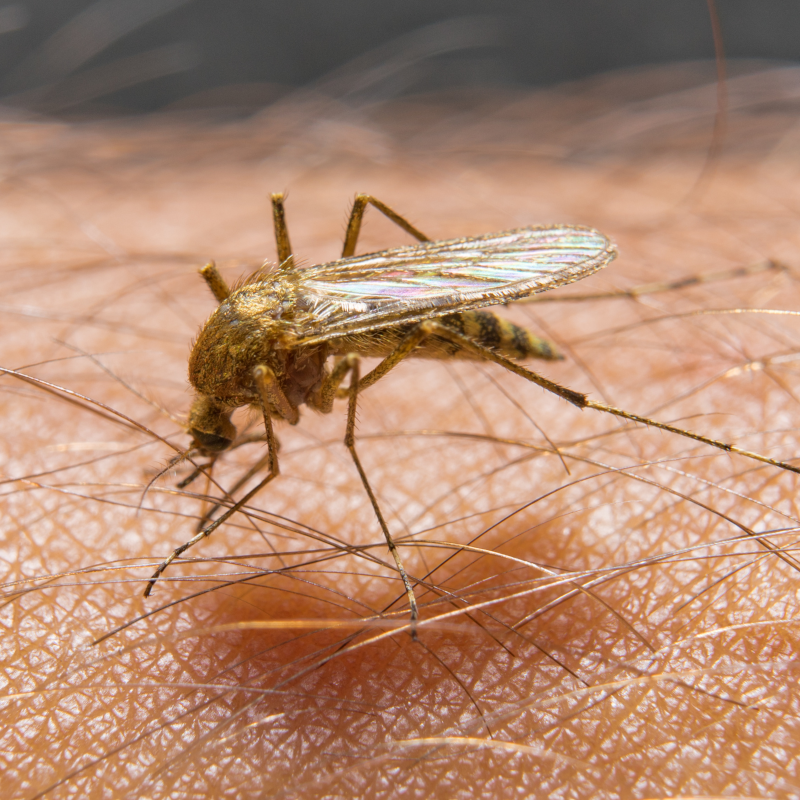Preventing West Nile Virus

The best way to prevent WNV disease or any other mosquito-borne illness is to reduce the number of mosquitoes around your home and to take personal precautions to avoid mosquito bites. Stopping mosquitoes is key; limiting their habitat helps limit the spread of the virus. Precautions include:
- Avoid being outdoors when mosquitoes are most active, especially between dusk and dawn.
- When outdoors, wear shoes and socks, long pants and a long-sleeved shirt, and apply insect repellent that includes DEET, picaridin, oil of lemon eucalyptus, or IR 3535.
- Make sure doors and windows have tight-fitting screens. Repair or replace screens that have tears or other openings. Try to keep doors and windows shut, especially at night.
- Eliminate all sources of standing water that can support mosquito breeding, and contact your municipal government to report areas of stagnant water.
Review each section below to learn more.
Empty Sources of Standing Water
Mosquitoes lay eggs in standing water.
Here are some tips:
- Every 2-3 days, drain water from outside pet dishes, garbage cans, buckets, toys, flower pots, wading pools, pool covers, birdbaths and other objects that can collect water.
- Discard any old tires and unused containers.
- Clean gutters.
- Drill holes in the bottoms of recycling bins.
- Clean and chlorinate swimming pools, outdoor saunas and hot tubs. If not in use, drain water out and cover tightly to avoid water pooling at the bottom.
Keep Mosquitoes Off You
- When possible, stay inside at dusk, dawn and other times of heavy mosquito activity.
- Wear long sleeves, long pants and socks. Light-colored clothing is best.
- Make sure doors and windows have tight-fitting screens. Replace or repair holes or tears in screens.
Mosquitoes like tall grass and weeds. Keep these cut.
Use Insect Repellent Properly
- Insect repellents can help reduce mosquito bites that may carry viruses such as West Nile virus.
- Many of the mosquitoes that carry West nile virus bite between dusk and dawn. If you are outdoors around these times of the day, it is especially important to apply repellent.
- Always follow the directions on the product you are using. Use a product with one of the following active ingredients: DEET,* picaridin or oil of lemon eucalyptus. (Oil of lemon eucalyptus was tested against mosquitoes found in the U.S., and it provided protection similar to repellents with low concentrations of DEET.)
- Repellents containing a higher concentration (higher percentage) of active ingredient typically provide longer-lasting protection.
- Put repellent only on exposed skin and clothes (not near eyes, nose or mouth, or on cuts, irritated skin or children's hands).
- Wash exposed skin and clothes after coming indoors.
- If you are pregnant or breastfeeding, ask your health-care provider before using any chemical product.
*The American Academy of Pediatrics (AAP) has updated its recommendation for use of DEET products on children, citing: "Insect repellents containing DEET with a concentration of 10% appear to be as safe as products with a concentration of 30% when used according to the directions on the product labels," AAP recommends that repellents with DEET should not be used on infants less than 2 months old.




